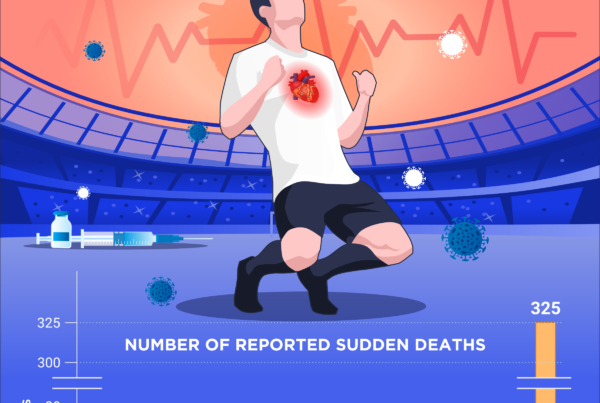An excerpt from “The Big Book of Endurance Training and Racing” by Dr. Phil Maffetone.
Call it hitting the wall or bonking, but when your brain and body feel like shutting down, and you have almost no energy to continue moving, it means something is physically and mentally wrong. Bonking is not normal. Having helped endurance athletes avoid bonking throughout my coaching career, and having experienced this painful event myself early on in a marathon, I am convinced that with proper diet and training you can avoid the dreaded bonk.
You’ll know when you’re bonking—it typically occurs seemingly out of nowhere and fast. For marathon runners, it usually happens around the so-called wall at twenty miles, or for triathletes anytime during the run of an Ironman-distance event. The mileage is not relevant, but the time and intensity of your race is a key to when you may bonk. And in addition to the obvious physiological nature of the problem, which has a lot to do with the kinds of fuel you’re burning (fat and sugar), the notion of a “wall” can be a psychological stumbling block for some athletes.
The signs and symptoms vary with individuals. You usually feel sudden weakness throughout the body (muscles seemingly not responding as they should). There’s often a loss of normal mental function and reduced concentration. You no longer think about finishing the race, and stopping sounds like the best idea (although many try pushing themselves). Fellow competitors are flying right past. This further discourages you. Your own world seems to be going in slow motion. In extreme cases, you can collapse.
Bonking is caused by an inability to burn sufficient fat for energy. This source of sustained, long-term energy and stamina has deteriorated and without it one must rely mostly on sugar and its strict limitation to provide energy. In the process, one uses up too much of one’s glycogen stores and now the blood sugar becomes too low, depriving not just the muscles but the brain of fuel.
Once you’re out of gas, it’s game over. Bonking actually prevents you from further damaging your body by trying to continue—at least in most cases. Once you reach the point of bonking, it’s difficult to escape this state in the course of a race, even if you slow down, consume carbohydrates, or even stop to cool off. The time to avoid bonking in a race begins long before, in your training, and continues through the implementation of a pre-race plan of food and race nutrition and pacing.
If you find yourself frequently hitting the wall (I believe once is too much), some self-assessment can help alleviate this condition. Ask yourself: “When does the sudden fatigue happen?” In shorter endurance events of one to two hours, the reasons are different than for longer races. A bonk that occurs during a shorter event often indicates one isn’t using sufficient fat burning for energy. A well-trained endurance athlete with great fat burning can often race this distance without consuming any nutrients during the race except water, because his or her body fat provides so much of the energy.
Other athletes may need to consume nutrition during a shorter race; in addition to water, this can be some form of carbohydrate, such as a drink you previously determined in training works well for you. The use of carbohydrate during any endurance event is important, especially to help the body maintain fat burning and preserve glycogen and blood sugar.
Other problems that can reduce fat burning include starting the race too fast. This is not unusual in these shorter endurance events. When this happens, you begin racing much faster than your body can convert fat to energy (and much faster than you could possibly maintain for the duration of the race). This forces your body’s metabolism to rely more on sugar and less on fat. The result is you use up your stored energy in the form of glycogen, and burn too much blood sugar—recovery from this debt early in a race is nearly impossible and can easily lead to a bonk.
Your pre-race meal is important and can also influence fat burning. This is not only breakfast the morning of the race but also dinner or an evening snack the night before. If these meals are made up of high-glycemic carbohydrates, it can raise your insulin too much, thereby reducing both glycogen stores and fat burning when the gun goes off. The result: a bonk.
Pre-race stress can also be a factor in reducing fat burning, with some people more vulnerable. This is particularly true in those with adrenal dysfunction, where cortisol levels are too high (or too low), typically in athletes who are overtrained. Combine this with pre-race tension and it could contribute to a bonk.
In addition to fat-burning problems, water regulation can contribute to a bonk. Given the right set of circumstances, significant dehydration can stop you quick. Causes can include not enough water intake before the race, not enough during the race, high temperatures, dry air, or competing at higher altitude. Other factors can also contribute to bonking in a shorter event: nutritional imbalances, extreme weather conditions, allergy or asthma, and a lingering cold or an oncoming flu. Many times, an athlete will bonk because more than one problem exists.
Many of the same factors can cause a bonk in longer events, such as those lasting more than two hours. But the main factor that makes these races different is the need for continuous nutrition throughout the event. This comes in the form of water to prevent significant dehydration and carbohydrates to help maintain fat burning. Most athletes in longer events need more fuel, with both protein and fat contributing to energy needs as well.
Once an athlete understands his or her needs during any endurance event, bonking should never occur. Being smart about training and racing begins by understanding your body’s needs. The process of experimentation should take place during training, not racing. Once you find your optimal routine, including nutritional requirements, pacing strategy, stress control, and other physical, chemical, and mental factors that pertain to you, not only will you avoid bonking but you’ll race better.








